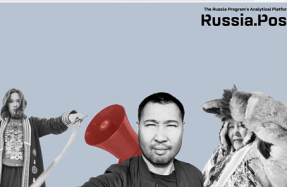Latin America's year of political struggle and unexpected displays of solidarity
With large exoduses, deadly protests and changes of government, 2018 was anything but ordinary for Latin America and Spanish-speaking communities worldwide.
As witnesses and interpreters of such events, Global Voices’ contributors have helped us sift through the noise and untangle their complexity. From the protests in Nicaragua to the Venezuelan crisis, we have told stories of resilience, of unexpected solidarity, and unusual forms of resistance.
Crisis and exodus
By now, millions of Venezuelans have fled their country and many are using online platforms to help others who want to do the same.
Once in their destination, the growing diaspora faces discrimination by the local population — as well as other limitations that aren't limited to language or culture.
Meanwhile, the crisis inside Venezuela worsens. The food shortage, along with soaring levels of urban violence, disproportionally affect women. Expanding forms of state control increasingly resembles George Orwell's Big Brother — and government links to China's big tech suggests surveillance will keep on growing.
Why do Venezuelans see their country reflected in George Orwell's “1984”?
Venezuelans shudder at news of biometric ID deal with Chinese tech giant
Up north, a “migrant caravan” fleeing the violence in Central America makes it to Mexico and awakens anti-immigrant sentiments. The media follows closely what goes on by the border with the United States, but doesn't always take the time to explain what it is that Central Americans are running away from.
Arrival of the ‘migrant caravan’ lays bare Mexico's own anti-immigration side
Changes of power and citizen-led counter-power
Guatemala's democracy was shaken by President Jimmy Morales’ refusal to renew the mandate of the United Nations-backed International Commission against Impunity. The country's top court ruled in favor of the commissioner's return, giving hope to those who support legal institutions in the struggle against impunity. The Commissioner Iván Velázquez hasn't been back to Guatemala, however, and in recent interviews he has denounced further efforts from the government to shut down the commission. Among them, the recent withdrawal of diplomatic immunity from 11 workers of the Commission.
In Nicaragua, demonstrations against social security reforms have transformed into a national outcry against corruption and censorship. The crackdown was swift and brutal. More than 300 people have been killed since the beginning of the protests in April. Journalists have also suffered violent attacks. Human rights organizations point to Daniel Ortega's government as the main perpetrator.
Amid continuing crackdown on anti-government protests, Nicaraguans pay homage to those killed
Nicaraguan protesters and journalists face violent attacks on the streets and online
Cuban citizens debated the Constitutional changes that will regulate internet use in the island.
Cubans can now join public debates on new Constitution through digital platforms
Another Constitutional amendment opened the possibility of legalizing gay marriage, leading to heated debates in Cuban society.
Mexico commemorated the 50-year anniversary of the Mexican Movement of 1968. Months later, it elected a leftist president after decades of right-wing government. Still, people did not keep quiet when the pacifist AMLO announced the creation of a militarised police force that will fight urban crime. Many difficulties lie ahead for the new president, but hopefully citizen-led initiatives will provide a helping hand.
Mexico’s was not the only election that shook the region. Costa Rica’s presidential hopeful Fabricio Alvarado, a Christian conservative, alarmed many human rights organizations, especially those devoted to LGBTQ rights. However, the winner was progressive Carlos Alvarado and with him, Costa Rica's first black female vice-president, Epsy Campbell Barr.
The importance of having an Afro-feminist activist in Costa Rica's government
Local and global solidarity
Colombians have spoken up against the scores of murdered social activists. In a period of only the first half of the year, over a hundred activists were killed. With the peace deals and the subsequent developments of the country’s internal conflict, a battle for land control has ensued.
As Colombia's peace process falters, scores of social activists are being killed
Finally, Argentina was the closest it's ever been of legalizing abortion. The Senate ended up voting against it, but the movement in the streets and online was massive and evoked memorable displays of solidarity in Latin America and beyond.
The abortion legalization movement in Argentina gets a boost of global solidarity
Originally published in Global Voices.







